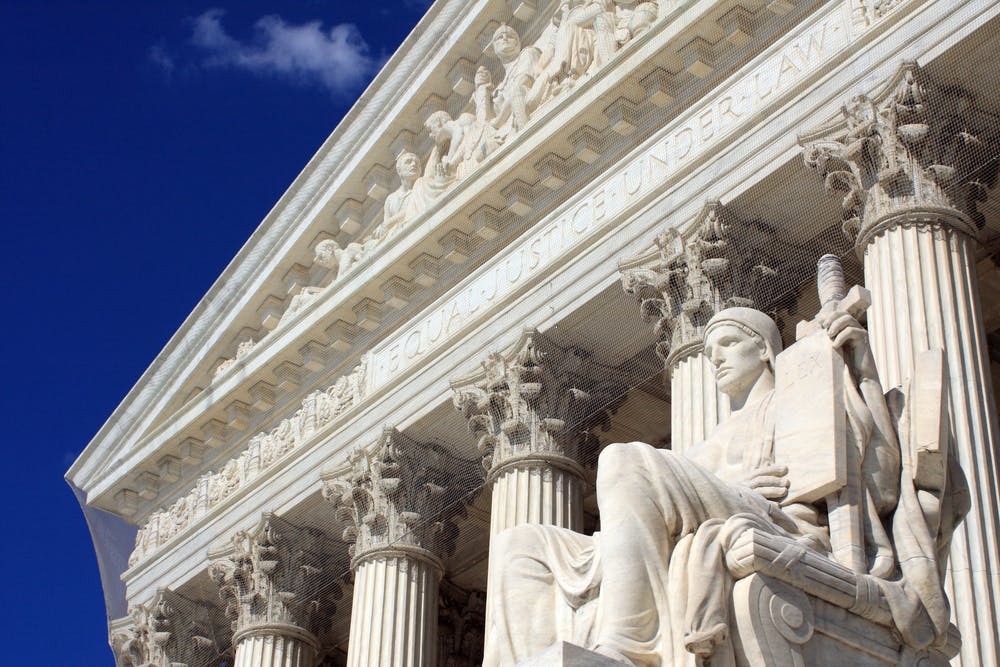There’s much hand-wringing and hand clapping today over the U.S. Supreme Court’s decision that government workers can’t be forced to contribute to unions.
In a 5-4 vote, the Court’s conservative majority ruled that laws requiring teachers, firefighters, police and other public sector workers pay dues or in-lieu fees to unions are a violation of the 1st Amendment and therefore unconstitutional. Today’s ruling overturned a 1977 decision in which the court said government workers couldn’t be forced to pay union dues if some part of them were used to support political candidates or causes. But they could be required to pay a lesser amount since they reaped the benefits of union contracts.
Writing for the majority in Janus vs. AFSCME, Justice Samuel A. Alito Jr. said, “We conclude that this arrangement violates the free speech rights of nonmembers by compelling them to subsidize private speech on matters of substantial public concern.”
Alioto’s 49-page decision ranges widely across issues of public sector union influence in wages, pensions, and benefits. “Unsustainable collective-bargaining agreements have also been blamed for multiple municipal bankruptcies,” Alioto says at one point. “These developments, and the political debate over public spending and debt they have spurred, have given collective-bargaining issues a political valence that Abood (the 1977 decision) did not fully appreciate.”
Thus, the court’s majority concludes, laws compelling public sector workers to contribute an “agency fee” to support collective bargaining activities amounts to requiring them to support a political position they may not individually support.
In a sharp dissent, Justice Elena Kagan accused the court majority of “weaponizing” the 1st Amendment. “The majority has overruled Abood for no exceptional or special reason, but because it never liked the decision. It has overruled Abood because it wanted to,” she wrote in a dissent joined by Justices Ruth Bader Ginsburg, Stephen G. Breyer and Sonia Sotomayor.
The decision strikes down compulsory agency fee laws in 22 states, including in California, New York and New Jersey.
As might expected in such a closely watched case, reaction was swift.
The National Federation of Independent Business issued a statement applauding the decision, and calling it a win for small business, even though the ruling only applies to government workers. “For too long dissenting public employees have been forced to fund public employee unions that they do not agree with, said Karen Harned, Executive Director of the NFIB Small Business Legal Center. In the past, armed with a guaranteed stream of revenue, public employee unions grew in influence and power, shutting out other voices, including that of small business who cannot afford increased taxes, more red tape, and onerous regulations.”
Mark Janus, an Illinois government employee who was the plaintiff, declared himself “thrilled” with the decision. “So many of us have been forced to pay for political speech and policy positions with which we disagree, just so we can keep our jobs. This is a victory for all of us. The right to say ‘no’ to a union is just as important as the right to say ‘yes.’ Finally our rights have been restored.”
On the other side, the nation’s four largest public unions — NEA, AFSCME, SEIU and AFT — called the decision “shameful” and charged the Supreme Court majority with bending to the will of wealthy special interests. “It is shameful that the billionaire CEOs and corporate special interests behind this case have succeeded in manipulating the highest court in the land to do their bidding. This case was nothing more than a blatant political attack to further rig our economy and democracy against everyday Americans in favor of the wealthy and powerful.”
Despite the heated reactions, the court’s decision was hardly a surprise. In 2015, the identical issue of compulsory union fees was brought to the court by California teacher Rebecca Friedrichs. The court was prepared to strike down the fees on a 5-4 vote when, before a decision was issued, Justice Antonin Scalia died. The court announced a month after his February 2016 that it was deadlocked 4-4.
Thus, Littler Mendelson attorney David K. Broderick, explained that today’s decision, “Puts to rest an issue that has been dangling before the court for years.” The decision to leave it up to each individual whether or not to pay union fees, may now mean “public unions may be forced to adjust their approach to collective bargaining.” However, he noted, that “Although Janus may handicap unions’ financing for collective bargaining efforts, public unions were not issued a complete death blow. Footnote 6 of the majority opinion suggests that unions can be allowed to charge nonmembers for representing them in grievance proceedings.”
